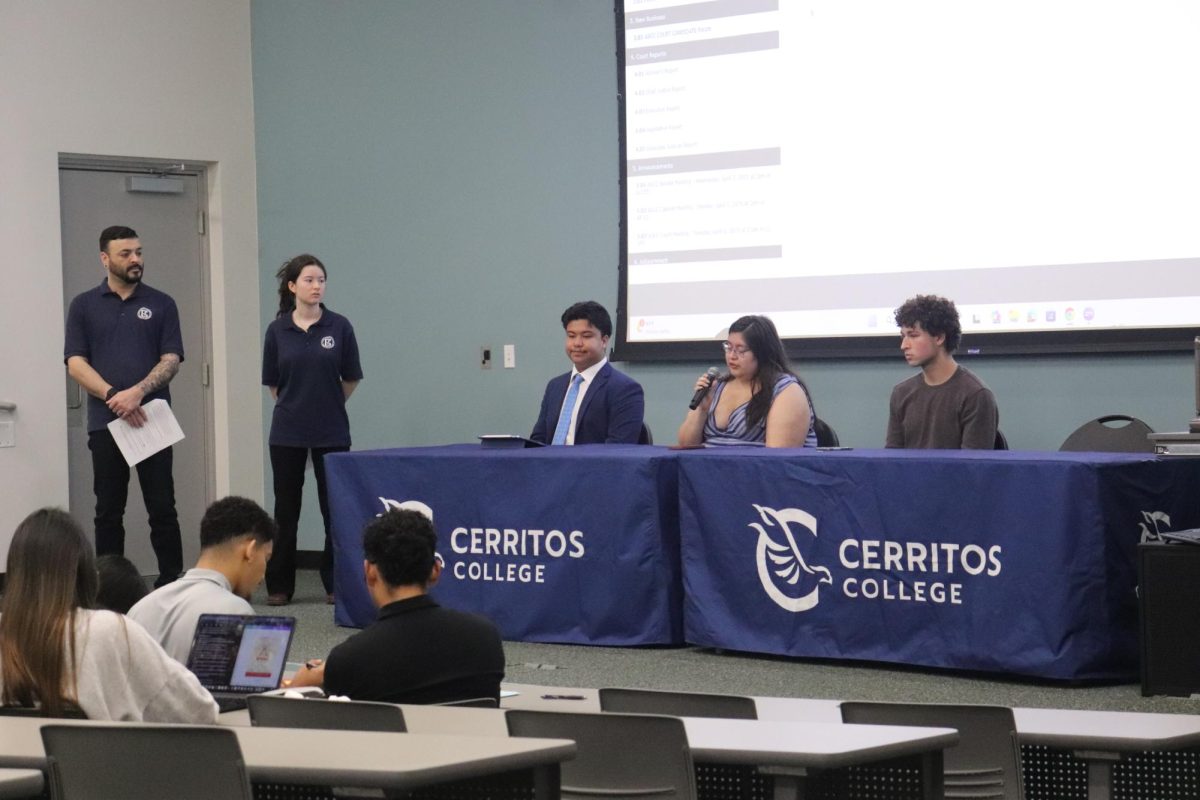Dr. Natalie Sartin, the department chair of Black/Africana studies, talked about the possible demotion of three departments and their updated resolution, which will be in the senate agenda.
The three departments that she mentioned were Africana studies, Chicano studies and Women’s & Gender studies.
“The union shared, with the three interdisciplinary department chairs, that the district wanted to demote the departments to a program,” Sartin said.
By demoting these three departments, and moving them into a program, “they lose status, ability to make decisions themselves and lose department chair,” Sartin explained.
“That there is a suggestion that we reduce these departments at a time when ethnic studies have become a requirement for students … wanting to transfer to a CSU,” Sartin said.
Sartin is referring to the AB 1460 law, which was signed by governor Gavin Newsom on Aug. 17th, 2020.
EdSource writes in their article on the AB 1460 law, which was written by Micahel Burke. Burke explains AB 1460 law, “(which) requires CSU students to take a class in one of four ethnic studies disciplines.”
Burke then explains the four ethnic studies, which were Native American, African American, Asian American and Latina (or Latino) studies.
As a result of those three departments possibly losing status, “we created a resolution in support of the three departments,” Sartin said.
During the senate meeting, there were senators, (who were faculty) who initially disagreed with their amendment.
“There were claims that we didn’t perform departmental tasks,” Sartin said, “like creating a unit plan or hire.”
The senate notes showed that an amendment was created where Women’s & Gender studies should be a department but the two other departments should no longer be a department.
“We create a unit plan, hire, do evaluations, have monthly meetings and we elected a chair,” Sartin explains, “we have been operating this way and we have been acknowledged by the college for two years or more in departments.”
She also mentioned that those who created the resolution met with several senators and are actively working together in a more collaborative fashion.
They ended up making a revised resolution, which the revised resolution will bring about during the Faculty Senate meeting in March.
“It’s not only important to us, but it’s important to the students,” Sartin said, “this impacts students’ ability to have access to multicultural programs and courses.”
Passing this resolution can strengthen the chances of these departments keeping their status. We will find out if this revised resolution will be passed on the March 22 faculty senate meeting, which Sartin encouraged students to attend.











